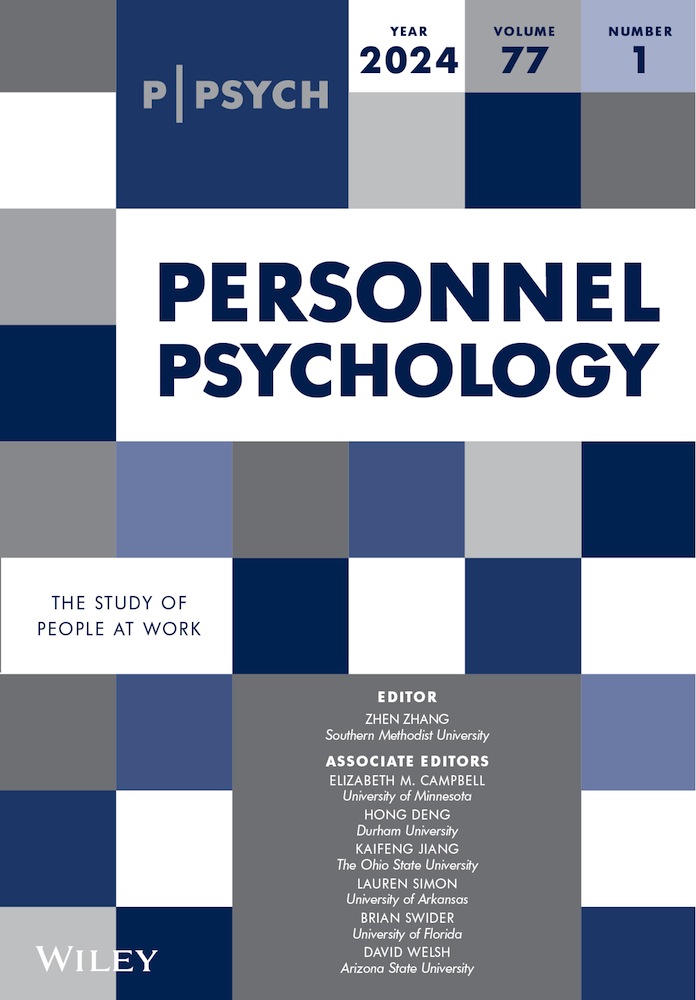Unpacking the nonlinear effect of self‐efficacy in entrepreneurship: Why and under which condition more is not better
IF 6.4
2区 心理学
Q1 MANAGEMENT
引用次数: 0
Abstract
Abstract Self‐efficacy exerts a positive impact on several self‐regulatory functions to support goal accomplishment and performance. However, in contexts that are characterized by uncertainty and ambiguity, such as entrepreneurship, there might be a tipping point to this relationship, prompting calls for deeper investigations on the nonlinear effect. In particular, the underlying mechanisms explaining why and when the nonlinear effect occurs are unclear. Drawing on theories of self‐regulation, we examine the nonlinear effect of entrepreneurial self‐efficacy on venture goal progress through the entrepreneur's active feedback‐seeking and venture effort. We also propose that the entrepreneur's state error mastery orientation moderates the nonlinear effect. Conducting a six‐wave repeated measures study among 84 early‐stage entrepreneurs in a business accelerator in the Philippines, we use a within‐person approach to test our hypotheses and research model. Results suggest that self‐regulatory mechanisms in terms of feedback seeking, effort, and state error mastery orientation help to unpack why and when self‐efficacy exerts a nonlinear effect on performance outcomes.剖析自我效能在创业中的非线性效应:为什么以及在什么条件下越多越好
自我效能感对支持目标实现和绩效的若干自我调节功能产生积极影响。然而,在以不确定性和模糊性为特征的环境中,例如企业家精神,这种关系可能存在一个临界点,这促使人们对非线性效应进行更深入的研究。特别是,解释非线性效应发生的原因和时间的潜在机制尚不清楚。利用自我调节理论,我们通过企业家的主动反馈寻求和创业努力来考察企业家自我效能对创业目标进展的非线性影响。企业家的状态误差掌握取向对非线性效应有调节作用。我们对菲律宾一家企业加速器中的84名早期企业家进行了六波重复测量研究,采用了人内方法来检验我们的假设和研究模型。结果表明,在反馈寻求、努力和状态错误掌握取向方面的自我调节机制有助于解释自我效能对绩效结果产生非线性影响的原因和时间。
本文章由计算机程序翻译,如有差异,请以英文原文为准。
求助全文
约1分钟内获得全文
求助全文
来源期刊

Personnel Psychology
Multiple-
CiteScore
10.20
自引率
5.50%
发文量
57
期刊介绍:
Personnel Psychology publishes applied psychological research on personnel problems facing public and private sector organizations. Articles deal with all human resource topics, including job analysis and competency development, selection and recruitment, training and development, performance and career management, diversity, rewards and recognition, work attitudes and motivation, and leadership.
 求助内容:
求助内容: 应助结果提醒方式:
应助结果提醒方式:


